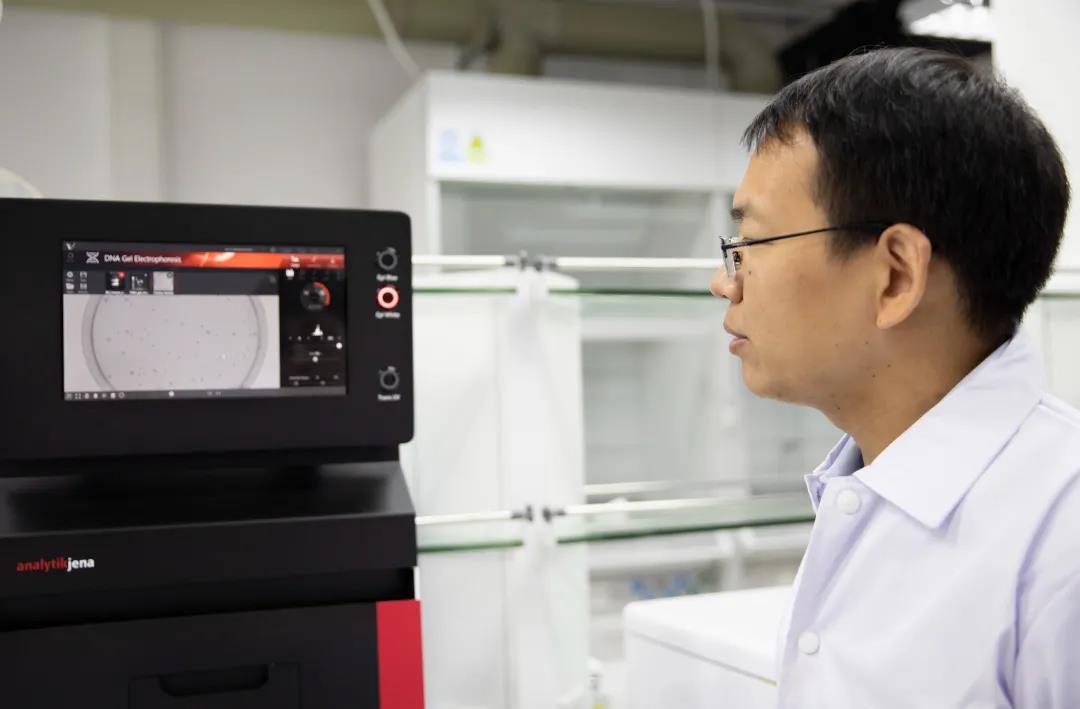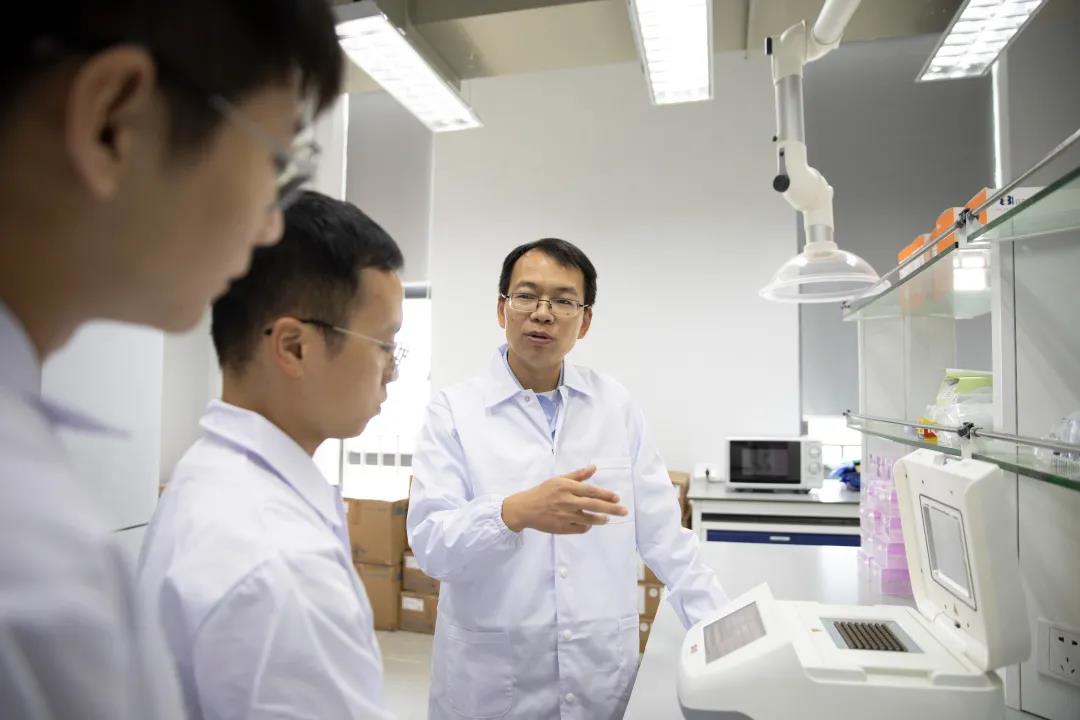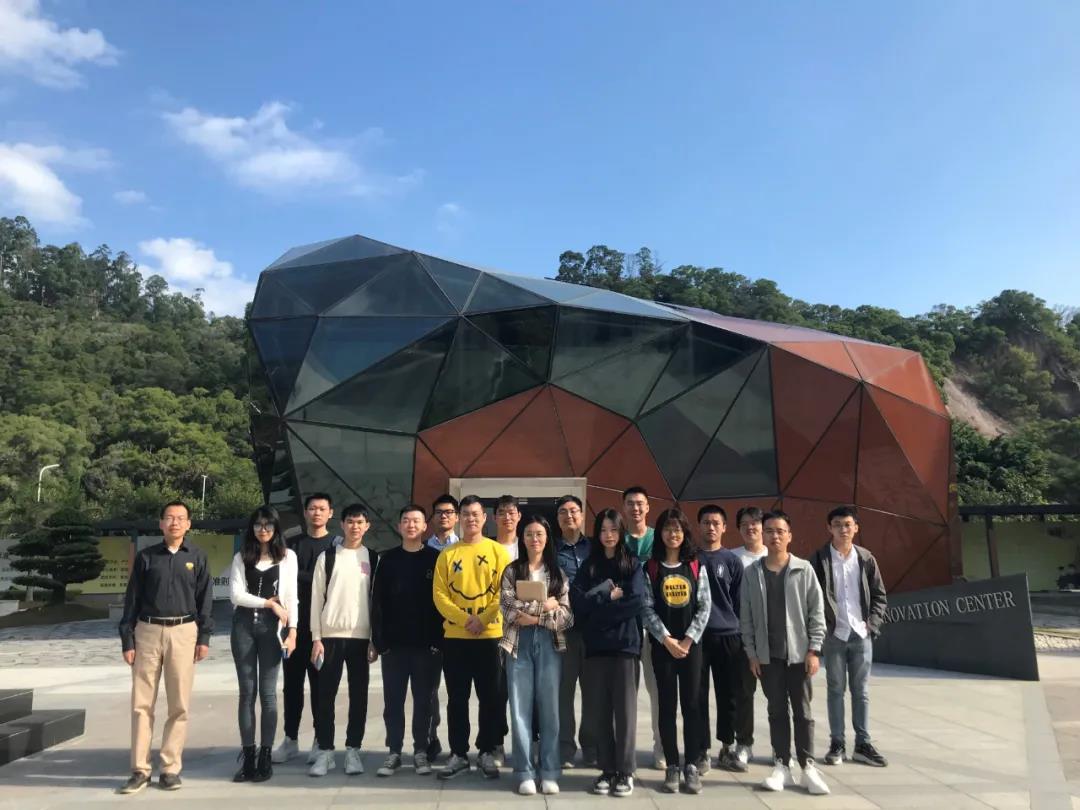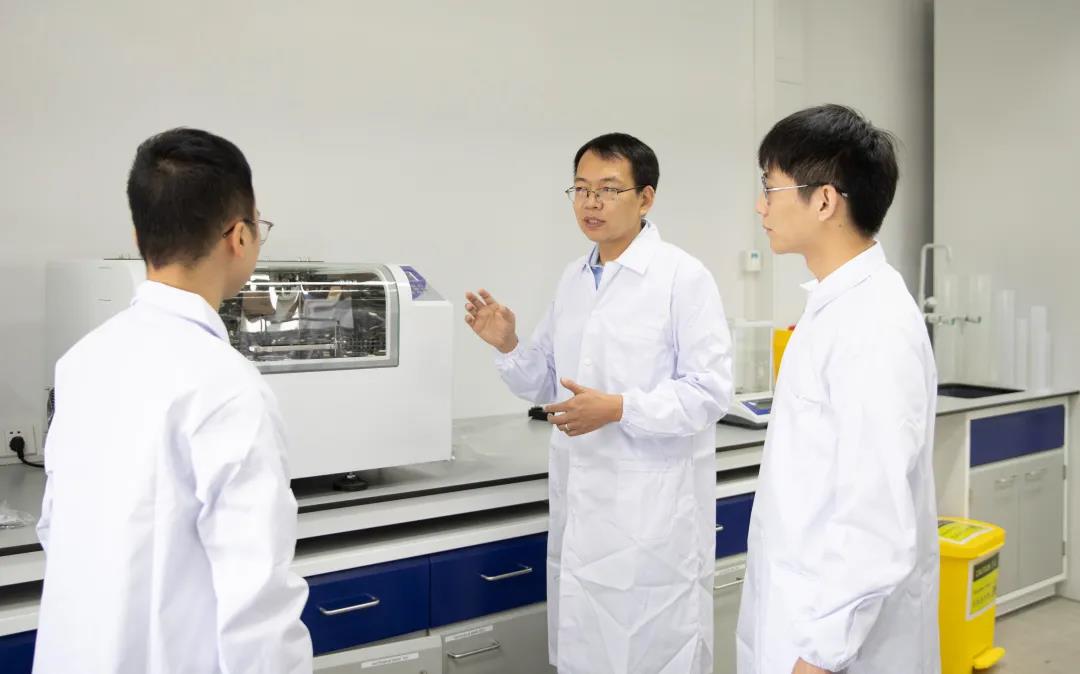PostTime:11/17/2021
Not long ago, GTIIT News & Public Affairs published an article titled “Artificial Fat | A ‘GT style’ startup completed pre-seed funding” which introduces the progress of the artificial fat company Yali Bio. Recently, we conducted an exclusive interview with Dr. Xu Peng, an associate professor of GTIIT who is also the co-founder and chief scientific advisor of the Yali Bio company.
In the previous article, you mentioned the reason why you joined GTIIT. Can you expand on it?
GT has an open, diverse, and inclusive culture, and promotes freedom and international collaboration, which are the fundamental elements of academic innovation. The world has become so wonderful due to its kaleidoscope-like difference and diversity. I agree with the concept “Gain the knowledge and serve your nation” advocated by the Technion-Israel Institute of Technology. GTIIT provided first-class research facilities, learning and living environment for the faculty and students. Working with outstanding people is my consistent pursuit, and our students, faculty, staff, and related departments at GTIIT are all extraordinary.

Dr. Xu Peng
How did you feel about the Chaoshan area and the school environment after arriving at campus?
Chaoshan beef balls and Chaoshan cuisine are unique in the world. Also, Chaoshan is a famous hometown of overseas Chinese. Among my friends, there are Chinese from Malaysia and Indonesia, as well as compatriots from Taiwan. Most of them could find their roots in Chaoshan and Meizhou area. The unique Chinese traditions preserved here, as well as the pioneering innovative spirit, have an influence from generation to generation. For example, prominent business elites like Li Ka-Shing and Pony Ma were growing up under the impact of this culture. Metropolitan area is filled with bustle and hustle, while we could enjoy serenity and harmony in small cities. Calm and tranquility are the source of our strength. GTIIT is at the footage of the Shantou Longquan (Dragon-Spring) Rock, hearing the morning bells and evening drums, “drink the dew of magnolia in the morning, chew the petals of the autumn chrysanthemum in the evening” (a quote from a famous Chinese poem). This is probably the most ideal environment for teaching and research.
Which teaching tasks will you undertake? What is your scientific research plan?
I will mainly be responsible for teaching the foundation courses of chemical engineering, biochemical engineering, and synthetic biology. These courses are designed to help students understand chemical unit operations, biochemical reaction principles, cellular and genetic regulation processes, and to make adequate preparations for students to enter graduate school or the pharmaceutical and biotechnology industries. In contrast to the research methods of pure biology, we will use engineering and quantitative perspectives to study biological processes.

Dr. Xu Peng introduces the lab equipment
My laboratory will conduct scientific research and engineering practices centering around 'synthetic biology and intelligent control'. The main research contents include metabolic engineering, green manufacturing of biomolecules, the feedback control theory of cellular intelligence, and biochemical reaction networks. Just like IT engineers customizing various application programs, we, as synthetic biologists, modify the genome, which is the central processing unit (CPU) in the cell for its running and decision-making. In the laboratory, we use genetic tools to rewrite and program the DNA language, then re-implant it into the cell (which is ATGC). After this, the cell will be able to understand our instructions and execute the DNA program. With this program, we will be able to optimize the information flow and material transportation process within the cell and improve the cellular function, metabolism, and bioconversion efficiency. At the core level, it involves the storage, memory, copying, compilation, and decoding of the DNA language. Our main work in the lab is to customize the genetic applications (APPs) with the DNA language, recode to define a brand new operating systems (the genome), and build unique input/output (I/O) APPs which can be compiled and executed by the cell's CPU. These functions can be used in many areas including CO2 fixation, biopharmaceuticals, energy, health, regenerative medicine, environmental protection, and crop yield improvement. Unlike the computer language and machine intelligence, the organism is a self-replicating and self-repairing system with adaptability and evolution. In short, it is very cool research. Welcome students to my office to learn more (you can also find my email on the school's official website).
Please talk about your understanding of technological industrialization innovation and the path of scientific innovation.
In my shallow opinion, industrial innovation requires optimal allocation of resources, evaluations of technological reliability and policies, as well as rational predictions of the market. Instead of building castles in the air and indulging in empty talk, the projects should be realistic to solve and serve the long-term welfare of the nation or the basic needs of people's wellbeing. Academic innovation requires us to be thoroughly acquainted with our area. In such a way, we can process the information, integrate it and find connections between the missing parts. Only by laying a solid, professional and theoretical foundation can a high-rise building be built. The so-called "nine-foot platform starts from the base of soil". Don’t be afraid to question and challenge authority. Equip yourselves with critical and logical thinking skills, and embrace all kinds of new challenges. In this way, you may walk on the path of scientific innovation.
As a young teacher, what do you think of “being a mentor and educating people”?
“Teachers are the one who preaches wisdom and passes knowledge to solve doubts.” For me, there was a legendary teacher who had a profound influence on me. He is Professor Daniel I.C. Wang, an Institute Professor at MIT and one of the founding fathers and trailblazers of modern biochemical engineering. A Ph.D. student of Professor Wang, M. Croughan, acknowledged his mentor in his essay, “An owl can see in the dark and find lost coins; An owl can soar above the trees and view the entire forest; An owl can build a nest and raise more owls.” Students are like lost coins scattered in the dark. As teachers, I hope we can use wisdom and personal experience to enlighten students. I am honored to receive Professor Wang's teachings, be nominated and won the 2020 “Biotechnology & Bioengineering Daniel IC Wang Award”, which is the last B&B Wang's award during his lifetime. I am deeply aware of this responsibility, and would like to carry on Professor Wang’s legacy, shoulder his academic spirit, solve the practical problems related to the national economy and people's livelihood, and promote the work in the field of biochemical engineering in a down-to-earth way for the country and the people.

Dr. Xu Peng (left one) and his students
What mission do you think Chinese scientists should undertake?
In times of crisis, the patriotism and courage inherited by Chinese people are precious. Let's focus more on practical things to solve issues of global well-being, such as energy, health, and the environment. As an old saying goes, "When the Great Daoism prevails, the good becomes common as grass, and the world wealth and fairness is for everyone”. The new generation in China has unlimited potentials. They will surely shine upon the road and put forward our national rejuvenation and technological development.

Dr. Xu Peng introduces the lab equipment
Would you like to give some suggestions to GTIIT students?
I hope you can challenge yourself, lay a solid professional foundation in your study, have the courage to innovate and be good at innovation. As a Chinese proverb goes, “The pupil outperforms the master”. And I hope that the things you have achieved, the roads you have traveled and the people and things you have experienced will carry your dreams like a kite, flying over thousands of mountains and oceans. But don't forget that the string of this kite is always connected with your family, your homeland, and your roots. After 10 to 15 years, we hope to see your kite, carrying your dreams flying high in the sky. In the pursuit of knowledge and scientific research, please don’t look for shortcuts or detour. Be authentic and be true. If you sow sweat, faith and hope today, tomorrow you will harvest a bright future. Finally, I want to use the poem from the Ming Dynasty educator, Zhu Xi, to encourage our students, “One may fail to succeed as time passes by, so we should cherish time to never let them fly. Before he wakes up from the grassy dreams, the autumn leaves in the wind had started to cry”.
Thank you for your interview, do you have any other suggestions?
I recommend our students to read some master pieces in your spare time, such as The Youths China by Liang Qichao, Song of Seven Sons by Wen Yiduo, and Beloved China by Fang Zhimin. When China was in the period of enduring impoverishment and long-standing debility, those great people with lofty ideals and worrying heart did not indulge in depression. Instead, they shouldered the historical mission of achieving national rejuvenation and homeland’s reunification.
Although I am in an ordinary faculty position, I have the following expectations for myself: to be an efficient teacher and pass on the knowledge to the students, to preserve my moral integrity, to dedicate to public interests, to gain all-round capability, and to be receptive and responsible. My friend and I recently founded Yali Bio, and we received many well-wishes from students and their parents. As they say, “walk steady to reach the distance with appropriate rules and deeds”, which is also a great incentive and inspiration to me.
© GUANGDONG TECHNION-ISRAEL INSTITUTE OF TECHNOLOGY | 粤ICP备17036470号
